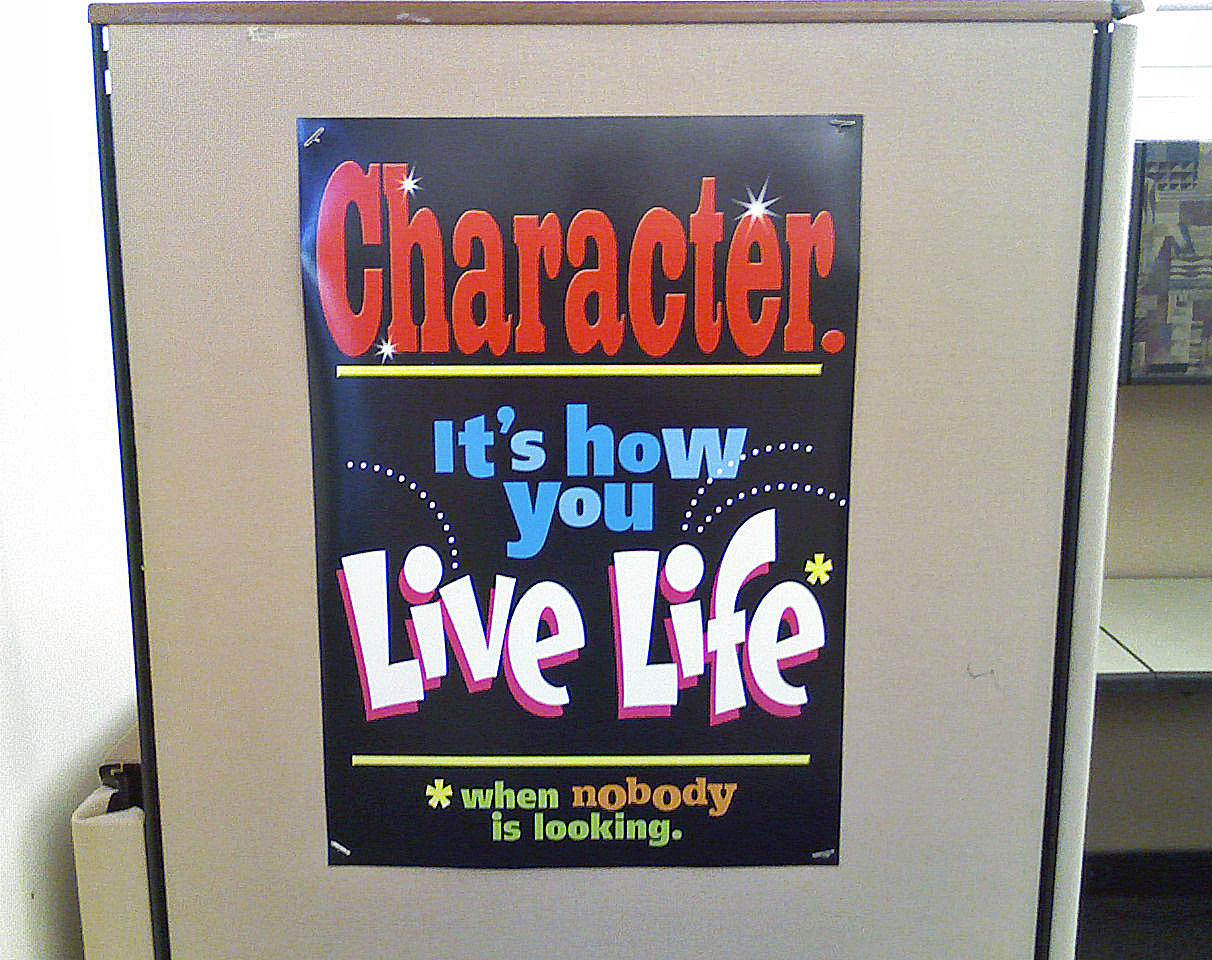
Sometimes it feels like I work in an elementary school. I mean, come on. Is this not incredibly patronizing?
Another question: If I pick my nose when no one is looking, what does that say about my character?

Sometimes it feels like I work in an elementary school. I mean, come on. Is this not incredibly patronizing?
Another question: If I pick my nose when no one is looking, what does that say about my character?
Andrew Sullivan regrets his initial support of the Iraq invasion, says it was born of a “narrow moralism”:
I recall very clearly one night before the war began. I made myself write down the reasons for and against the war and realized that if there were question marks on both sides (the one point in favor I did not put a question mark over was the existence of stockpiles of WMD!), the deciding factor for me in the end was that I could never be ashamed of removing someone as evil as Saddam from power. I became enamored of my own morality and the righteousness of this single moral act. And he was a monster, as we discovered. But what I failed to grasp is that war is also a monster, and unless one weighs all the possibly evil consequences of an abstractly moral act, one hasn’t really engaged in a truly serious moral argument. I saw war’s unknowable consequences far too glibly. [Emphasis added]
Roger Cohen in the Times:
I understand the rage of his former pastor, the Rev. Jeremiah Wright, however abhorrent its expression at times. I admire Obama for saying: “I can no more disown him than I can disown the black community.”
Honesty feels heady right now. For seven years, we have lived with the arid, us-against-them formulas of Bush’s menial mind, with the result that the nuanced exploration of America’s hardest subject is almost giddying. Can it be that a human being, like Wright, or like Obama’s grandmother, is actually inhabited by ambiguities? Can an inquiring mind actually explore the half-shades of truth?
Yes. It. Can.

Mariah skate-skiing atop 2′ or more of snow in Steamboat Springs.
Let’s move from discussions of race and religion to more serious matters …
Here are some quick thoughts about last night’s American Idol:
After a bad—really bad—performance, Brooke White cracked up. Brooke: Just. Stop. Talking. Please.
Chikezie didn’t put in his best performance but nonetheless reminded me why I like him: he’s funny, not too serious, playful, innovative, varied and energetic.
David Archuleta’s performance was totally hackneyed and I’m curious as to why Simon thought it was so great. Conspiracy?
Syesha Mercado … did she sing? All I remember is the lack of dress in her dress, specifically in the top half.
Amanda Overmeyer does her thing quite well. Most memorable: her able sparing with Simon, who insists on judging her by criteria she simply doesn’t care about.
Michael Johns (aussie, emo-mullet) crammed a complex song into too small a space, and the result was messy. Also, the cynic in me thinks his post-song dedication to a late friend was partly political. (Does that make me a terrible person?)
Bombastic, soul-patched David Cook usually bugs me, but I liked him last night.
Is the difference between Obama and pretty much every other mainstream politician, including, sad as it is to say, Hillary:
From the Times:
Mr. Obama had to address race and religion, the two most toxic subjects in politics. He was as powerful and frank as Mitt Romney was weak and calculating earlier this year in his attempt to persuade the religious right that his Mormonism is Christian enough for them.
When pushed against the fence, he didn’t take the demagogic route and seek refuge in a common enemy, as Romney did in secularism.
I didn’t hear him deliver it, but I read the transcript. Impressive.
Ezra Klein calls it “honest”:
Indeed, Obama could have given another speech. Shorter, to start. More focused on hope than on pain. More talk of tomorrow and less emphasis on the past. More dismissive of Wright and less insistent on the legitimacy of Wright’s experience, and the ubiquity of his thinking. He didn’t have to dwell on the black community’s frustration and the white community’s bigotry.
But this speech was something I didn’t expect: Honest. It was honest about Obama’s affection for Wright, even as it repudiated Wright’s comments. It was honest about the tragic history of race in America, even as it expressed faith in a redemptive future. It was honest about the resentment peddlers and racial charlatans who try and recast the increasing rarity of the American Dream as the consequence of ethnic competition rather than gross power imbalances. It was honest in its recognition that racial memory influences contemporary thought, honest in admitting that there’s anger in this country, and it’s justified, and that there’s fear in this country, and it’s real.